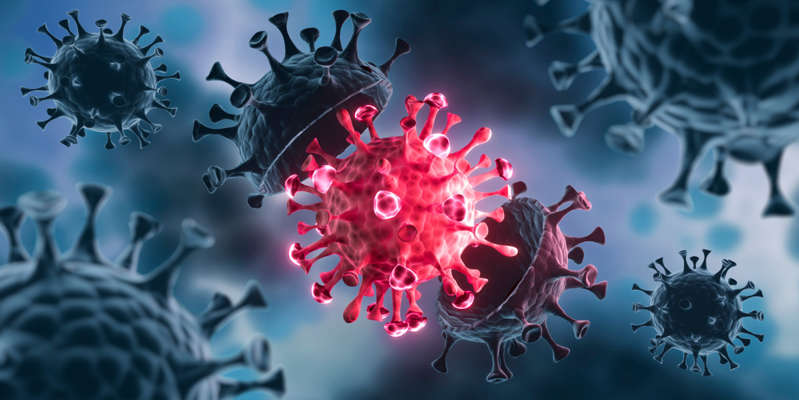
Coronavirus was able to mutate every week
The mutation rate of the SARS-CoV-2 virus that causes COVID-19 turned out to be twice as high as scientists thought. He was able to mutate every week, according to Genome Biology and Evolution.
Scientists from the Universities of Bath and Edinburgh concluded that many mutations that occurred, but were not sequenced, were not previously taken into account.
Viruses mutate regularly, for example, when errors are made when copying genomes during replication. This is believed to increase their vitality. But most mutations are harmful to the virus. They don't last long, so it's hard for scientists to track them down.
The authors of the new study took these mutations into account and determined that the virus's true mutation rate is at least 50% higher than previous estimates showed.
“Our results mean that if a patient has been suffering from COVID-19 for more than a few weeks, the virus can evolve, potentially leading to new options,” they noted.
So, the alpha version of the coronavirus probably originated in the human body, which for a long time could not cope with the infection. The scientists noted that some of the mutations they identified were predictable – they affected genes and interfered with the work of proteins. But there were also unexpected discoveries.
The proteins that the virus produces are made up of amino acids. The genome of the virus contains “instructions” about which amino acids to stick together and in what order. Natural selection has produced mutations that support more stable amino acids. This means that the virus requires less energy to maintain life.
Earlier it became known that not only people but also animals are sick with coronavirus. So, in the United States, the virus was first detected in a deer.

